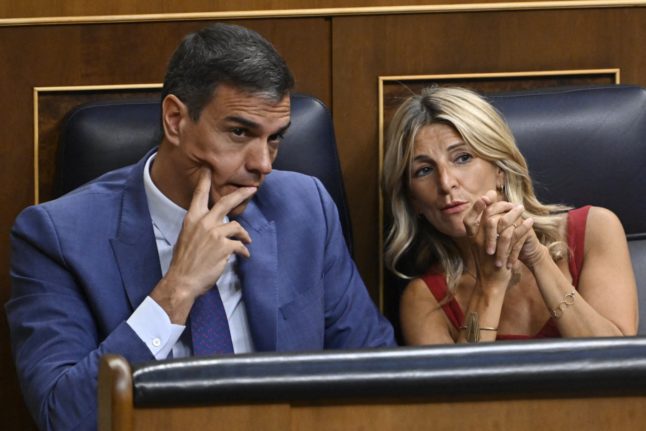In the face of a housing crisis affecting millions of Spaniards but which has seen foreigners buy up homes in record numbers, Socialist Prime Minister has announced plans to scrap Spain’s visado de oro.
“We are going to begin the procedure to eliminate the granting of the so-called golden visa, which allows access to Spanish residency when more than half a million euros are invested in real estate,” Sánchez told journalists in Seville on Monday.
“We are going to take the necessary measures to guarantee that housing is a right and not a mere speculative business.”
La vivienda es un derecho constitucional y no un mero negocio especulativo. Por eso vamos a eliminar la 'Golden Visa', la ley aprobada del PP que permite obtener el visado de residencia si se invierte más de 500.000 euros en vivienda en nuestro país.
Tener una vivienda digna no… pic.twitter.com/y2wxZlPXMC
— Pedro Sánchez (@sanchezcastejon) April 8, 2024
Access to the golden visa has also been open to those who invested €1 million in shares in Spanish companies, or €2 million in government bonds, or transferred €1 million to a Spanish bank account.
Therefore, Spain’s golden visa has come to be known as one of the ‘easiest’ ways of gaining Spanish residency as a third country national, for those wealthy enough.
Some of the other perks it has offered are that family members could be included on the visa, the option of not being a tax resident in Spain or having to live there, and freedom of movement around the Schengen Zone.
Since Spain’s golden visas came into force in 2013, more than 11,500 have been granted, along with another 20,000 authorisations for family reunification.
READ ALSO: What the end of Spain’s golden visa means for foreigners
However, these ‘wealth’ visa schemes have come under increasing scrutiny across Europe in recent years, seen as offering some criminals a gateway to life in Europe and allowing wealthy foreign property buyers to distort the real estate market.
The proportion of foreigners who bought properties in Spain in 2023 was higher than ever before, 15 percent of the total.
There is also evidence that in recent years foreign buyers have been willing to splash out more and more on a Spanish home.
READ ALSO: When and why is Spain axing the golden visa?
According to Sánchez, 94 in every 100 golden visas issued were linked to properties bought in popular provincial capitals such as Barcelona, Madrid, Málaga, Alicante, Valencia or Palma de Mallorca where property prices and rents have all risen exponentially.
The Netherlands, Portugal, Ireland, Greece and Malta have all either scrapped the equivalent of their golden visas or made the conditions much harder for millionaires who want to make a real estate investment.
“Las Golden Visa son una vergüenza europea. No puede ser que a alguien, por el hecho de ser multimillonario, se le otorgue un permiso de residencia.
Llevamos mucho tiempo exigiéndole al PSOE que adopte esta medida.”
💬 @ernesturtasun pic.twitter.com/QPU1LYbNMS
— Sumar (@sumar) April 8, 2024
Upon hearing the news, Spain’s hard-left Culture Minister Ernest Urtasun referred to the Spanish golden visa as a “European disgrace”, adding that “it cannot be that someone is given a residence permit for the fact of being rich; this is creating first and second-class citizens.”



 Please whitelist us to continue reading.
Please whitelist us to continue reading.
Any updates on timelines to when to shut down the program or redirect it to other options?